American dream shattered: Chinese drifter with doctoral degree stirs debate in China
Recent news reports featured a Chinese man who slept on the streets of New York, who turned out to be a doctoral degree holder educated in Fudan University and the US. The story of how he did not return to China after getting a scholarship and became a US citizen but ultimately ended up on the streets drew reactions from the Chinese, who questioned why China should take him back.
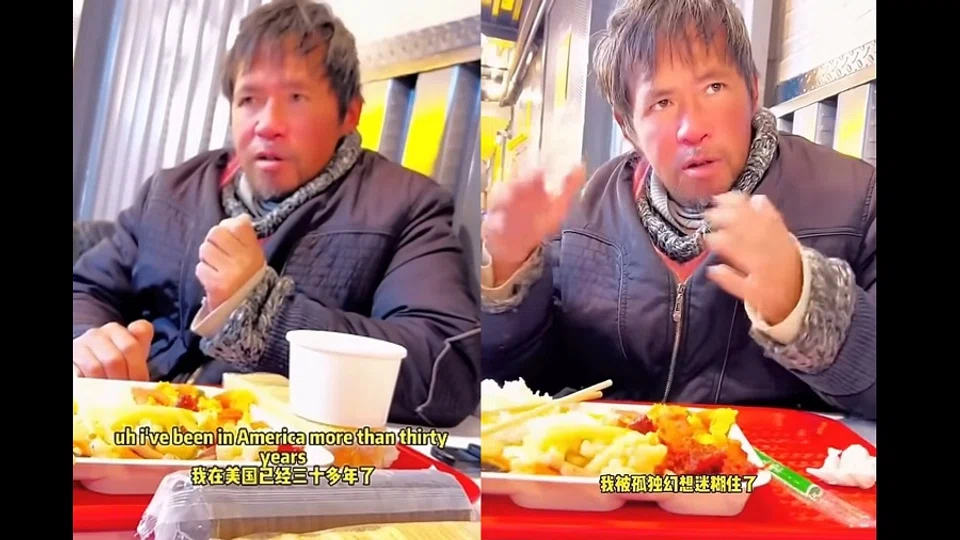
Recently, the Chinese public's attention has been captured by the riches to rags story of a physics prodigy from Fudan University who became a postdoctoral researcher at a Wall Street company earning an annual income of around US$130,000, but who fell from grace and ended up sleeping on the streets of New York.
From prodigy to homeless doctoral degree holder
This story started with a series of videos uploaded in early January by a Chinese blogger in the US. The blogger had come across a homeless man with dishevelled hair, ragged clothes and missing teeth on the streets of New York, lying under a dirty, tattered quilt against the cold. Seeing that he was Asian, the blogger approached him for a chat.
Hearing that the man had not eaten for a long time, the blogger treated him to a Chinese meal, over which the homeless man shared his story; despite his unkempt appearance, he was eloquent as he recounted his personal experiences and enviable resume.
The 54-year-old homeless man is surnamed Sun, from Jiangyin, Jiangsu. He has lived in the US for over 30 years, more than half of that time on the streets of New York.
He claimed to have graduated from Fudan University in Shanghai, with master's and doctoral degrees in physics from the US. He worked for a year or two as a postdoctoral researcher, and upon graduation, he became a software engineer at a Wall Street company for another year or two, earning an annual salary of around US$130,000.
Subsequently, he obtained a green card and later became a US citizen.
As a child, his results were excellent, and he was even admitted to Fudan University's physics department at the age of 16 as the top gaokao scorer of Jiangyin city.

In the 1990s, while in his prime, he met a Chinese woman and they fell in love and got married, only for his wife to divorce him after she obtained a green card. The blow sent him into depression and his life went downhill from there.
The homeless man said he chose to be treated in hospital after he fell into depression, but not only did his mental state not improve, he began to experience auditory and visual hallucinations and was unable to distinguish between reality and fantasy. "I'm trapped in loneliness and hallucinations and I don't know what's real and what's fake. [My brain is filled with] hallucinations and fantasies."
Since 2007, for 16 years, he has been wandering around without a roof over his head, begging and picking up discarded food.
The video went viral on the internet, and the homeless man was immediately recognised by former classmates and acquaintances. More information about him has also been dug up.
Beaten by life or given up on himself?
This homeless man is Sun Weidong. As a child, his results were excellent, and he was even admitted to Fudan University's physics department at the age of 16 as the top gaokao scorer of Jiangyin city. Subsequently, Nobel Laureate and renowned physicist Lee Tsung-Dao even selected him to be sent to the US on a full scholarship for further studies, where he went on to postdoctoral studies.
Sun became addicted to gambling after joining Wall Street and flew to Las Vegas every week to gamble. In the end, he lost all his money, which dealt a big blow to his mental health, leading to depression.
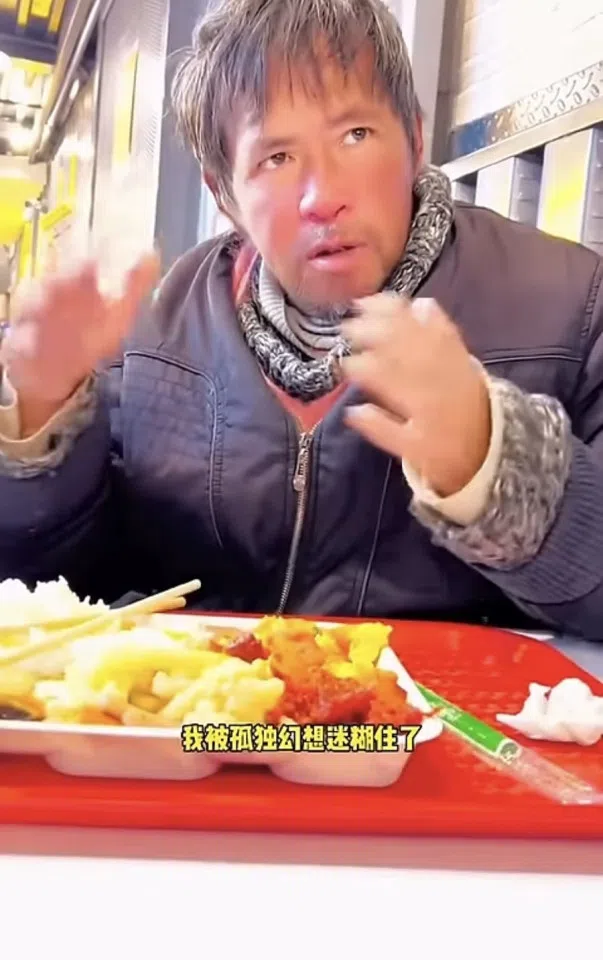
Chinese media outlets combed Google and found that Sun had published 32 dissertations between 1992 and 1999 alone, most of which were published in the peer-reviewed scientific journal Physical Review, which is considered to have published the most Nobel-winning physics papers in the world.
However, as for how Sun ended up in his current situation, online information suggests that he may not be as innocent as he claims.
Sources claimed that Sun became addicted to gambling after joining Wall Street and flew to Las Vegas every week to gamble. In the end, he lost all his money, which dealt a big blow to his mental health, leading to depression. Utterly disappointed in him, his wife took their child and left him; it was not the case that his wife only married him for a "green card", as Sun said.
Other sources also alleged that Sun did not return to China and chose to live on the streets of New York because his scholarship required him to return to China to work after graduation. But he did not do so, and even became a US citizen, implicating his family as a result.
However, in an interview on 5 January, one of Sun's relatives told Yangtse Evening Post that much of the information circulating online about Sun was "untrue".
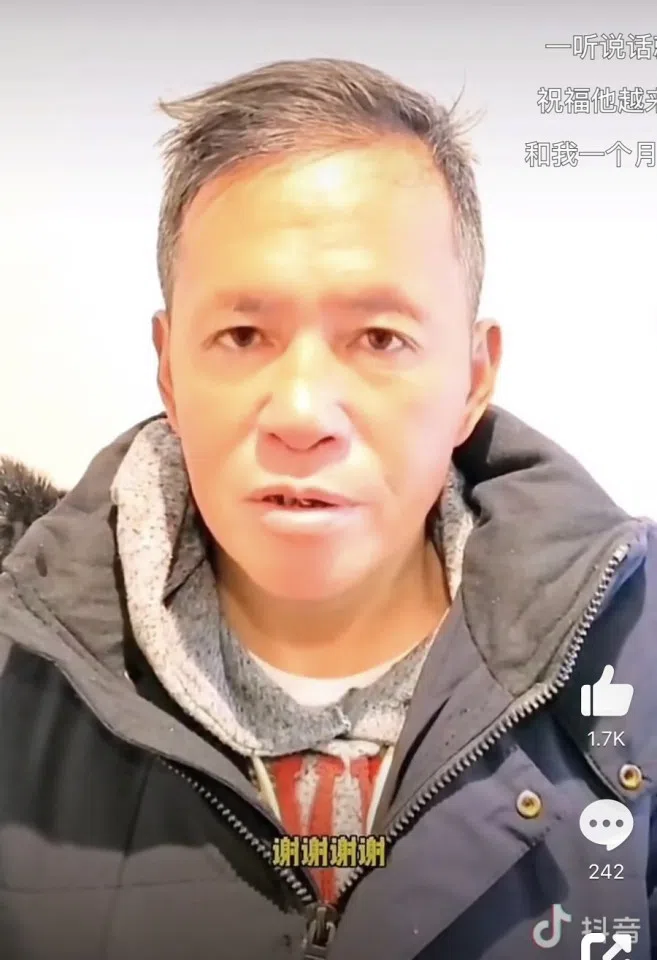
The internet is full of real and fake information. No one knows if this homeless PhD holder was defeated by life, or if he gave up on himself. However, many netizens still lament his life that started well and went downhill.
With the help of the Fudan Alumni Association, alumni and fellow countrymen in New York, Sun recently moved into a temporary shelter, with new clothes and a fresh haircut. He even thanked the people who have helped and cared for him in a video on 7 January.
Voices of sympathy and anger
Amid the mainstream expressions of lament, there were also voices of pity and sympathy, as well as those of puzzlement and anger.
Some netizens have said that if Sun were to return to China with such academic credentials prior to 2000, he would have been hired as a professor at an elite Chinese institution, and could have become a member of the Chinese Academy of Sciences. They felt it was a shame that fate was not kind to him.
Other netizens wrote, "The fall of a genius is lamentable. A Chinese student should prioritise serving one's country. If he returned home, perhaps he would not have fallen to such a state."
As for whether to sponsor Sun's return to China, netizens are split. Some supported the idea thinking he could then offer his talents in his area of expertise.

On the other hand, quite some netizens criticised Sun for being a "traitor"; he went overseas for education on government sponsorship, but did not return home after completing his studies, and even became an American citizen. "Now look, he ends up in this sorry state, and he wants to come back? Not a chance! Why should we have to care for a bum when even the Americans don't want to?"
However, Sun is probably unclear about whether he wants to go home. He said: "My motherland has nurtured me, but I did not return after my studies. I have let my motherland down, and I'm too ashamed to go home." But he also said: "I'm sickly and I'm afraid my mother would be upset to see me in such a state if I go home."
To most Chinese, one's educational background has utilitarian value. The higher one's education qualifications, the higher it is expected that one will climb the social ladder - Sun's story has undoubtedly shattered such expectations.
American dream crushed?
From a Western-educated professor to a homeless drifter, Sun's life story shattered the Chinese people's mental image of someone who is highly educated with a high net worth, and their imagination of the "American dream".
To most Chinese, one's educational background has utilitarian value. The higher one's education qualifications, the higher it is expected that one will climb the social ladder - Sun's story has undoubtedly shattered such expectations.
Sun Weidong went to the US to study in the 1980s, which saw a wave of Chinese going to the US to pursue an education as well as chase the "American dream" due to the gap between China and the US in terms of economic and educational development, as well as China's policy of reform and opening up.
... now, studying in the US is no longer an attractive option for them, and Sun's story is just another example fuelling this point of view.
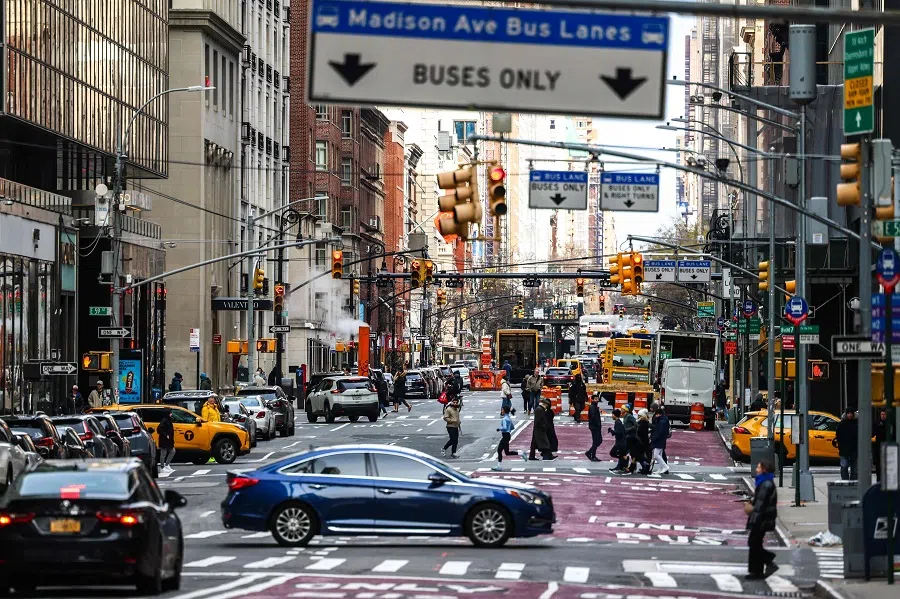
But with the rise of the Chinese economy and an increase in confidence among the Chinese, along with changes to the international situation such as the intensifying China-US competition, the Chinese are losing the rose-tinted view of a US education.
Statistics showed that from January 2020 to January 2023, the number of Chinese students who obtained an F1 student visa from the US dropped from 368,800 to 262,992, a decline of nearly 29%.
Previously, many Chinese students expected that they would be able to open up opportunities for upward mobility in the US through their hard work, courage and creativity. But now, studying in the US is no longer an attractive option for them, and Sun's story is just another example fuelling this point of view.
Ultimately, Sun's experience is extremely rare. It does not fit the Chinese people's expectations of the highly educated, or the narrative of the "American Dream" influenced by survivor bias, and so became fodder for the media. Especially against the backdrop of US-China rivalry and intensified economic competition, the hype of public discussion and the Chinese state media has also added a layer of politicisation.
"The country [China] would never spend taxpayers' money on an American [Sun Weidong] - why should it?" -Hu Xijin, former Global Times Editor-in-Chief
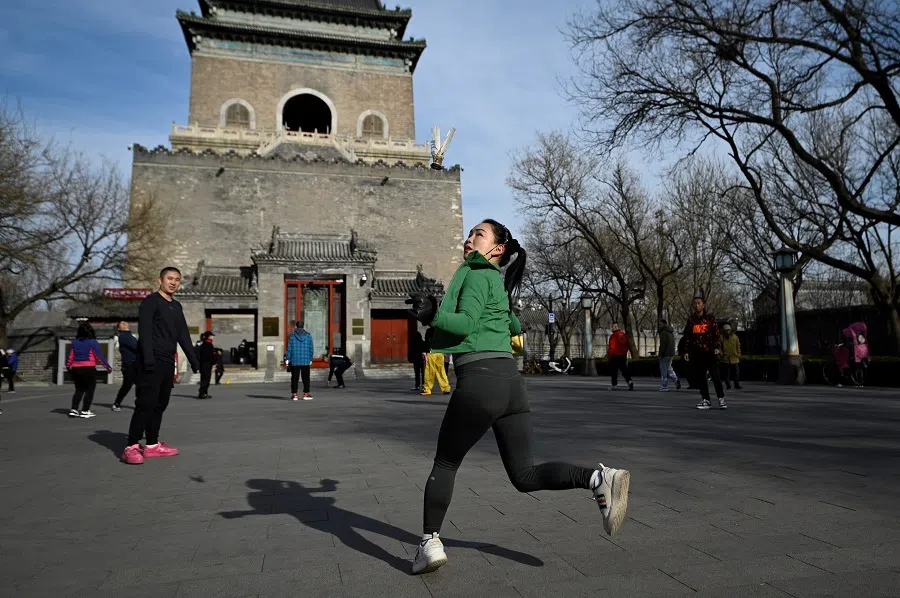
Chinese state media Global Times carried an article on 8 January by Wang Congyue, an assistant researcher at the Institute of American Studies of the Chinese Academy of Social Sciences, which criticised the US society for equating someone in poverty with having poor individual capabilities, even as a criminal. Wang added, "While countries all over the world are busy trying to 'eliminate poverty', the US is busy trying to 'eliminate those who are poor'."
Ironically, former Global Times editor-in-chief Hu Xijin had said in an earlier post on social media: "The country [China] would never spend taxpayers' money on an American [Sun Weidong] - why should it?"
Hu's viewpoint garnered much support from Chinese netizens. Admittedly, even though Sun was born in China, once he had obtained US citizenship it would be hard to expect China to lend a helping hand to an American in trouble - nevertheless, his failure made for excellent content for the Chinese media.
It is unlikely that media coverage would get Sun out of his current predicament. Once the hype around the issue dies down, Sun would most likely go back to life as a homeless drifter. This is an inevitable result of media manipulation, and is the other side of the coin when it comes to the "American Dream".
This article was first published in Lianhe Zaobao as "复旦留美流浪博士的美国梦".



![[Big read] When the Arctic opens, what happens to Singapore?](https://cassette.sphdigital.com.sg/image/thinkchina/da65edebca34645c711c55e83e9877109b3c53847ebb1305573974651df1d13a)
![[Video] George Yeo: America’s deep pain — and why China won’t colonise](https://cassette.sphdigital.com.sg/image/thinkchina/15083e45d96c12390bdea6af2daf19fd9fcd875aa44a0f92796f34e3dad561cc)
